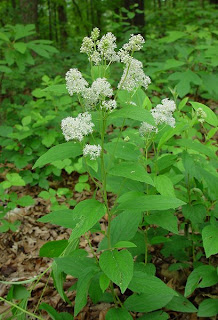JASMINE

Latin Name: Jasminum officinale
Alternate Names: Jasmin, Pikake, Sambac, Yeh-hsi-ming (Chinese), Jati (Sanskrit)
Family: OLEACEAE
Parts Used: Flowers.
Properties: Alterative, Antibacterial, Antitumor, Aphrodisiac, Emmenagogue, Galactagogue, Hemostatic, Nervine, Sedative.
Internal Uses: Bone Cancer, Breast Cancer, Cough, Depression, Fever, Frigidity, Headache, Hodgkin's Disease, Impotence, Lymphatic Cancer
Internal Applications: Tea, Tincture, Capsules. Syrup for coughs.
Topical Uses: Depression, Eye Soreness, Skin Dryness
Topical Applications: Eyewash for sore eyes. Used in lotions for dry and sensitive skin. Essential oil of Jasmine is used to promote confidence and physical and emotional well-being. It is also used as an aphrodisiac and to lift depression. The essential oil is used in perfume, soaps and lotions.
Culinary uses: Add to black tea to add a delightful aroma and flavor.
Energetics: Bitter, Sweet, Cool, Moist.
Chemical Constituents: Essential oil (benzyl alcohol, benzyl acetate, linalol, linalyl acetate), salicylic acid, alkaloids (jasminine).
Contraindications: Avoid the use of Jasmine if a person is very chilled. The pure essential oil is very expensive. If you are paying a cheap price for it, expect adulteration.
Comments: One of the most beautiful, fragrant flowers on Earth. Many consider the aroma itself to be an aphrodisiac, as well as to foster feelings of love and compassion.
The common name Jasmine also includes the species Jasminum sambac and Jasminum grandiflorum, which are used interchangeably with Jasminum officinale.
The common name Jasmine also includes the species Jasminum sambac and Jasminum grandiflorum, which are used interchangeably with Jasminum officinale.

